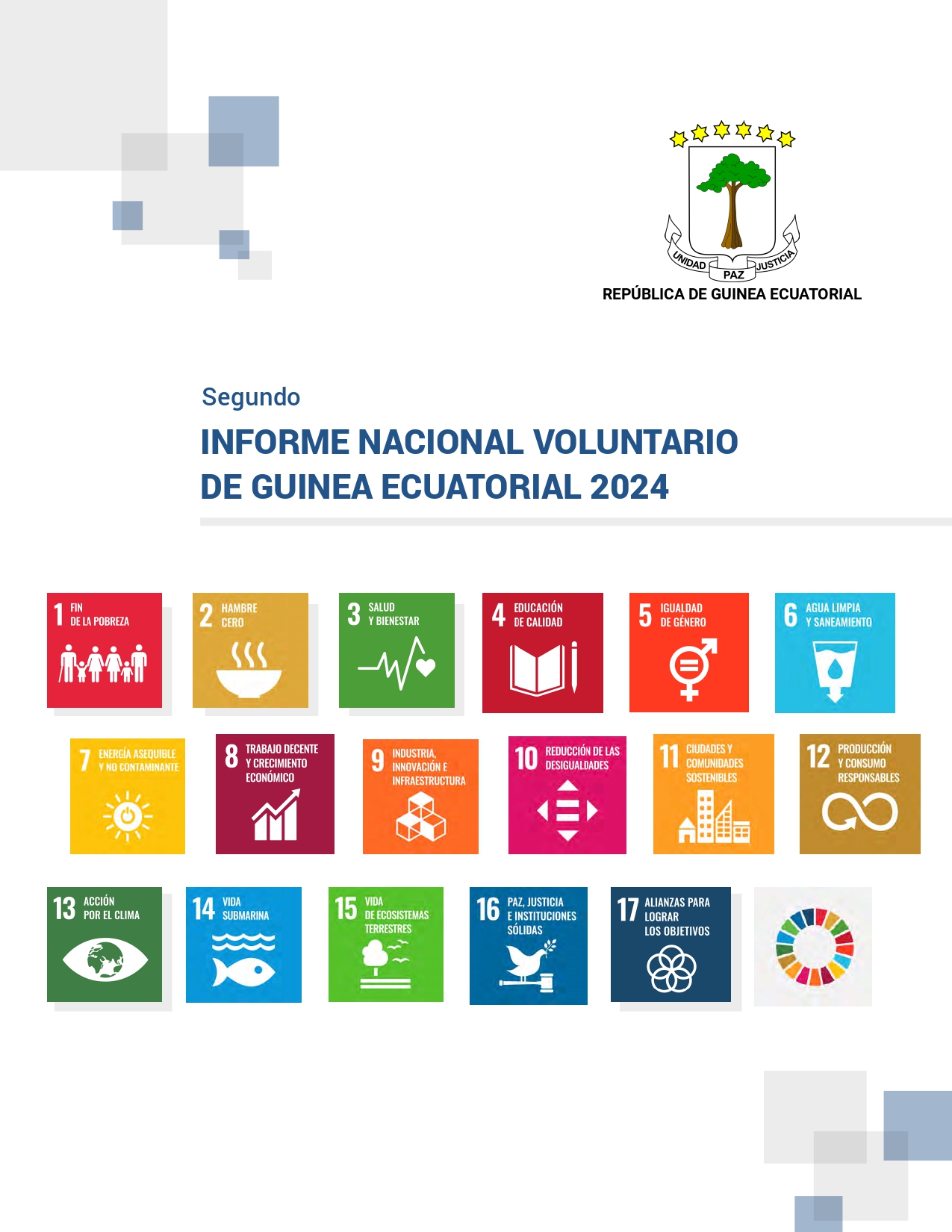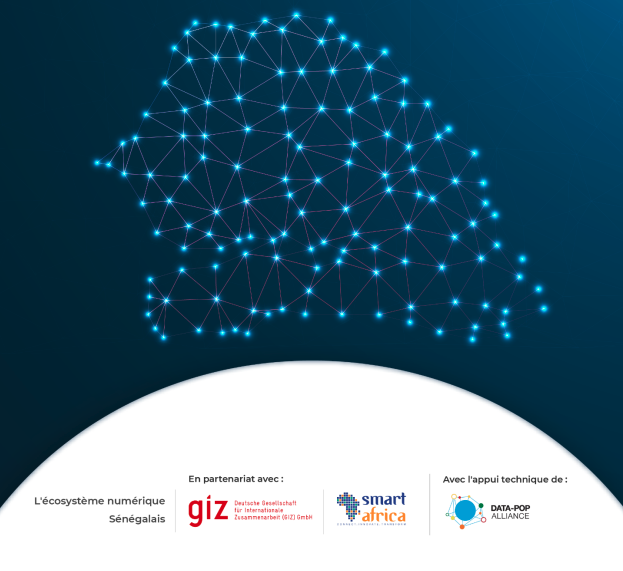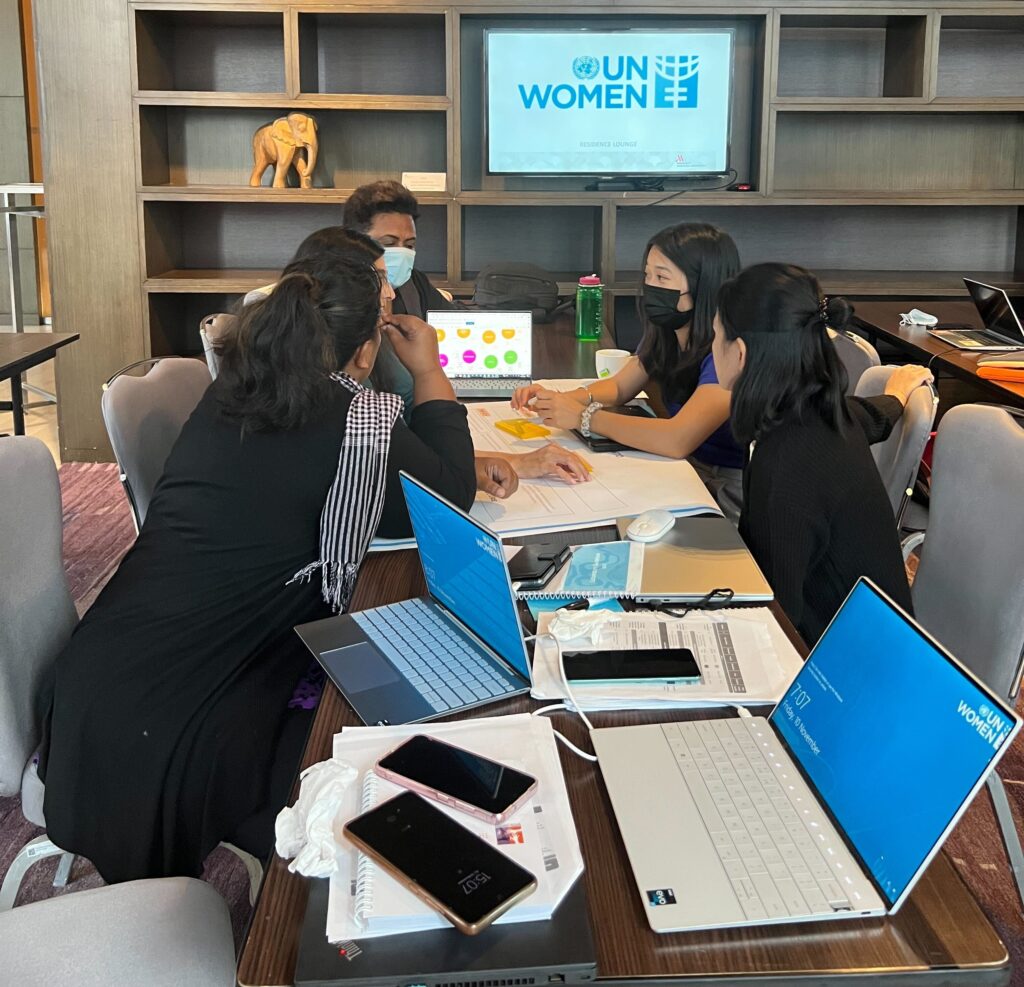
Three members of DPA’s Data Feminism Team, Program Director Anna Spinardi, Research and Data Analyst Yara Antoniassi, and Junior Data Scientist Yasmin Yazdi traveled to Bangkok, Thailand during the week of November 6-10th to give a Big Data training to UN Women’s Bangkok Office. The training offered participants the methodological knowledge and technical skills to collect and employ non-traditional data for monitoring gender-sensitive Sustainable Development Goals (SDGs). Upon completion of the training, participants developed the capability to understand the primary challenges, prospects, and constraints associated with integrating Big Data into gender-oriented development initiatives.
Day 1
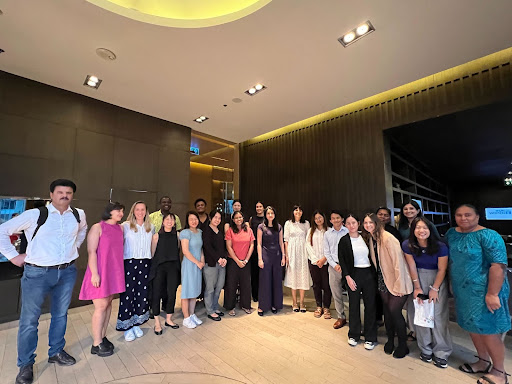
The workshop began with Anna Spinardi providing a clear overview, setting the stage for focused learning. A keynote by DPA Director Emmanuel Letouzé highlighted the importance of Big Data and AI, introducing the concept of “Human AI”. This was followed by sessions, led by Yasmin Yazdi and Yara Antoniassi, unpacking the Big Data ecosystem, its sources, and its role in advancing Sustainable Development Goals and ethical considerations.
Post-lunch, attention turned to Sentiment Analysis and Natural Language Processing (NLP), with a special focus on the Global Database of Events, Language, and Tone (GDELT) and its relevance in addressing social issues such as child marriage and female genital mutilation.
The afternoon continued with an introduction to bibliometric analysis and transitioned into a web scraping technical tutorial. The day wrapped up with Zinnya Del Villar‘s keynotes on ethics, rounding out a day rich in theoretical knowledge and its application.
Day 2
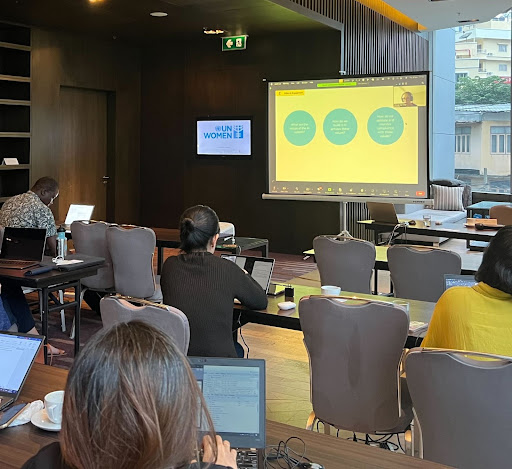
The second day began with a recap of key concepts learned the previous day, synchronizing the collective progress. The following session highlighted satellite imagery’s applications in gender-sensitive analysis of SDGs, complemented by practical and interactive exercises in Google Earth’s Engine platform.
A presentation then outlined the application of non-traditional big data through a case study of poverty indexing on Brazilian favelas. The post-lunch agenda showcased real world examples of gender-responsive SDG monitoring, underscoring big data’s transformative capabilities.
The day progressed with a Design Thinking laboratory, culminating in a hands-on exercise where participants crafted their gender-sensitive Big Data projects, leading to a showcase of innovative solutions and future applications.
The training was a great success, and we are thrilled to have the opportunity to work with such an esteemed organization on how to better leverage Big Data in the pursuit of gender equity. If your organization is interested in organizing a similar training, please reach out to Program Director Anna Spinardi at: aspinardi@datapopalliance.org.
Learn more about our Data Feminism Program:


